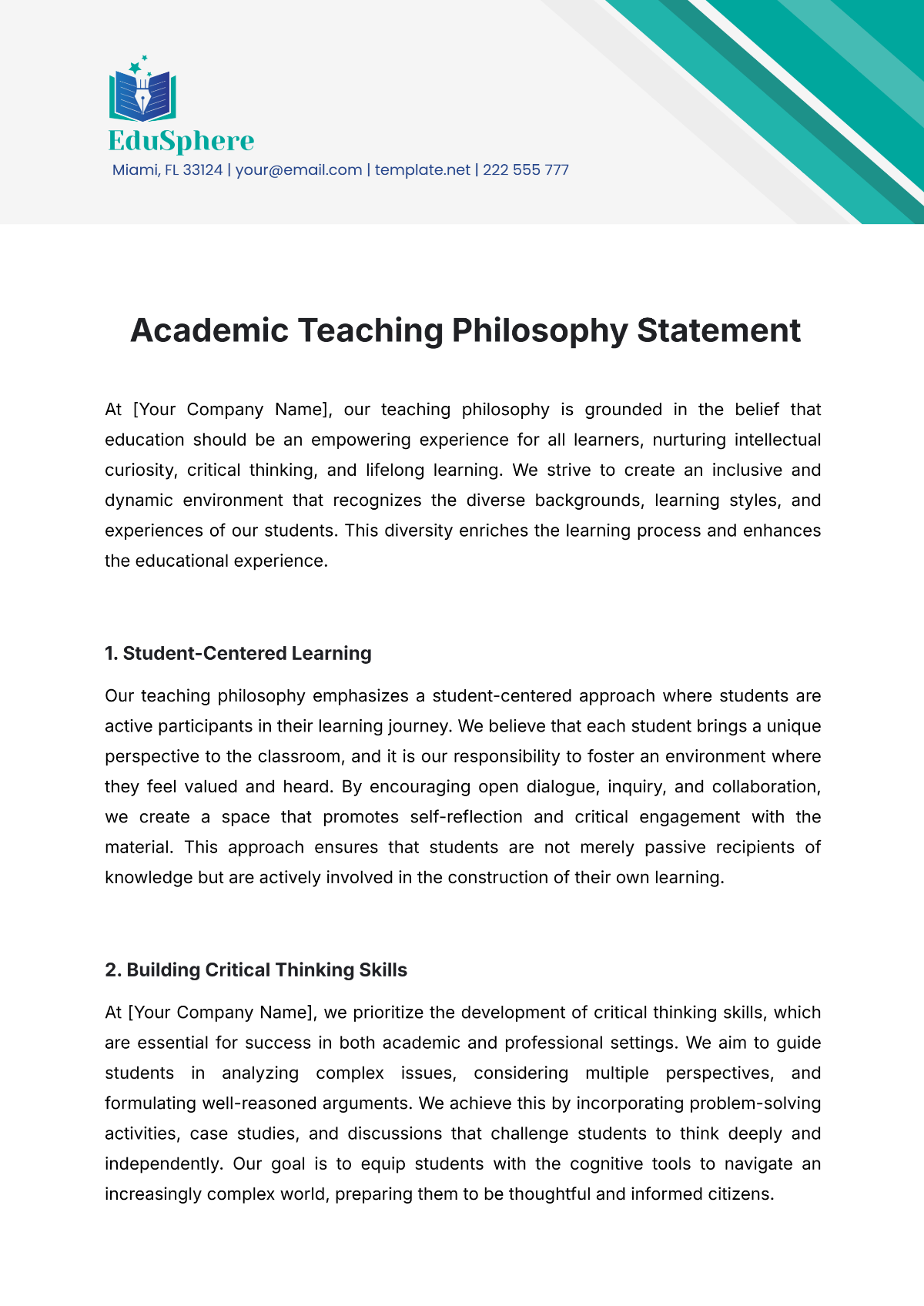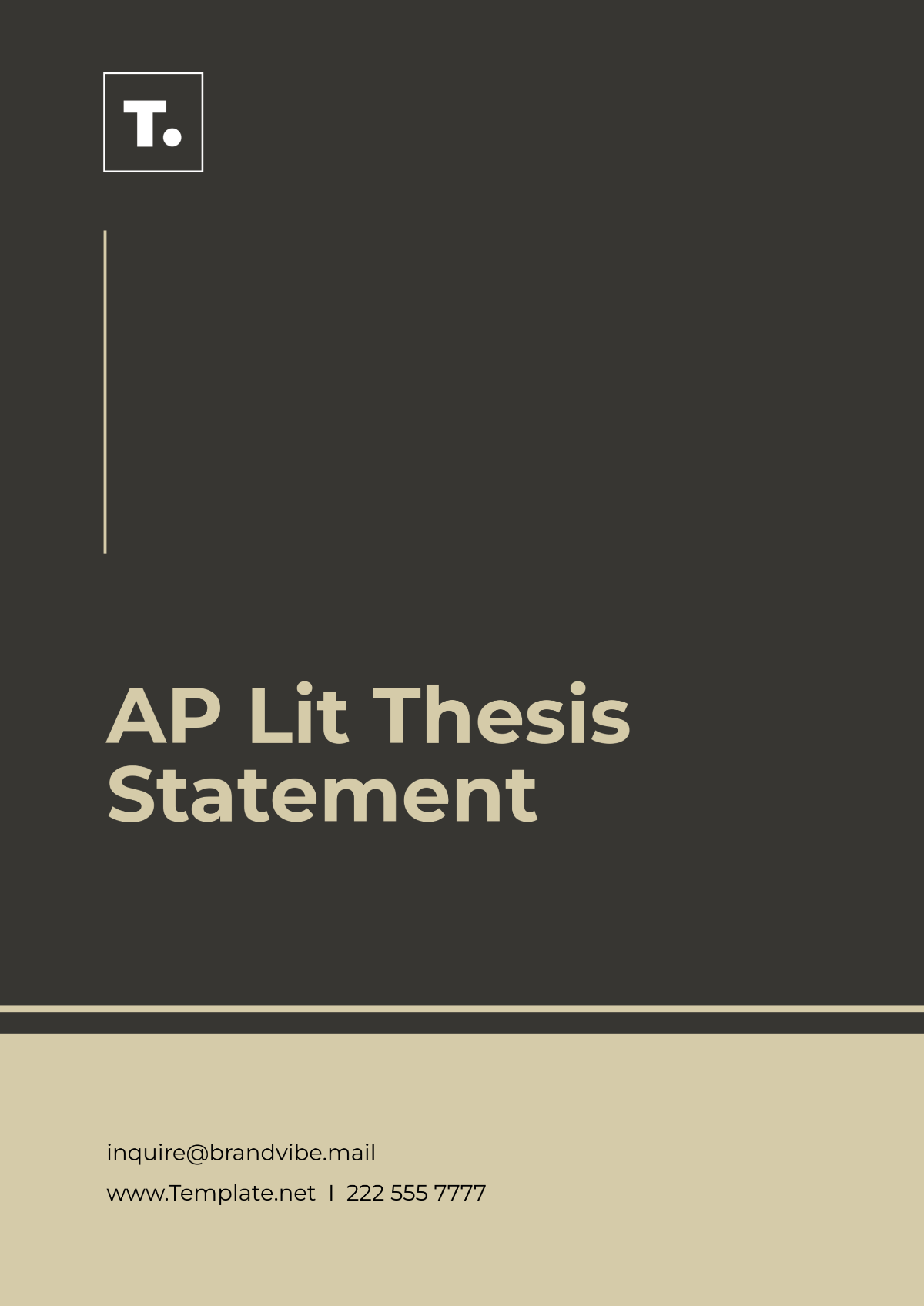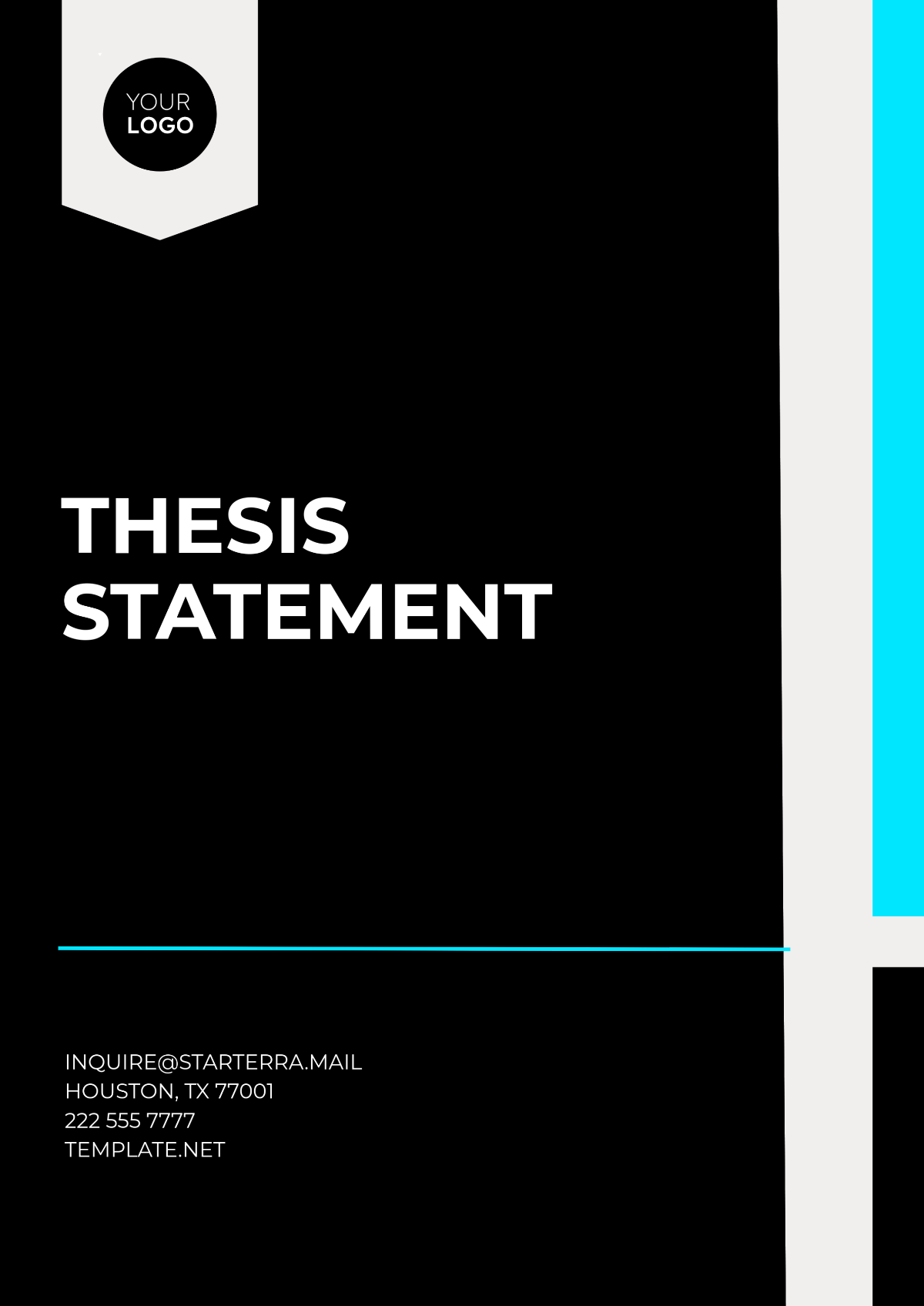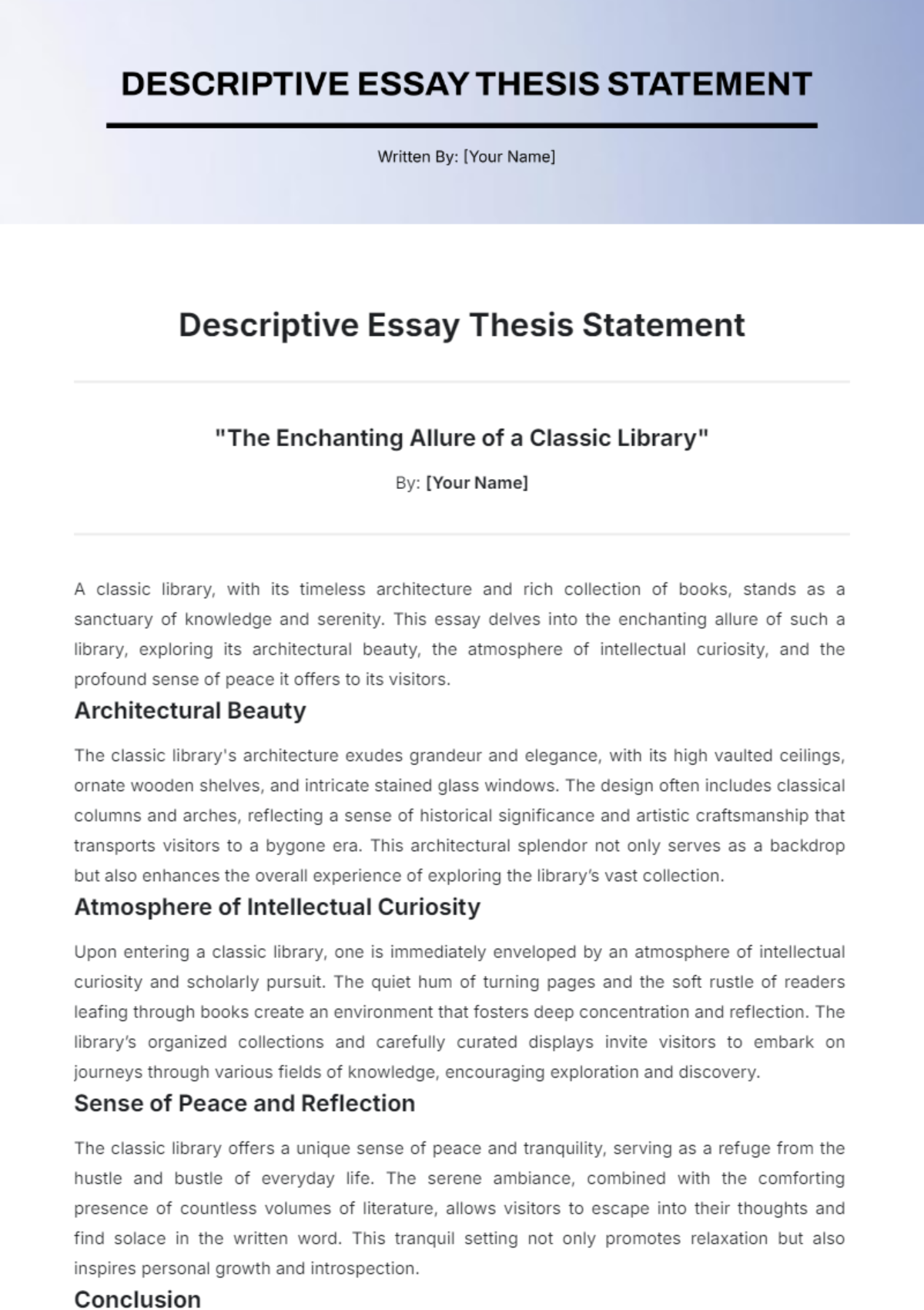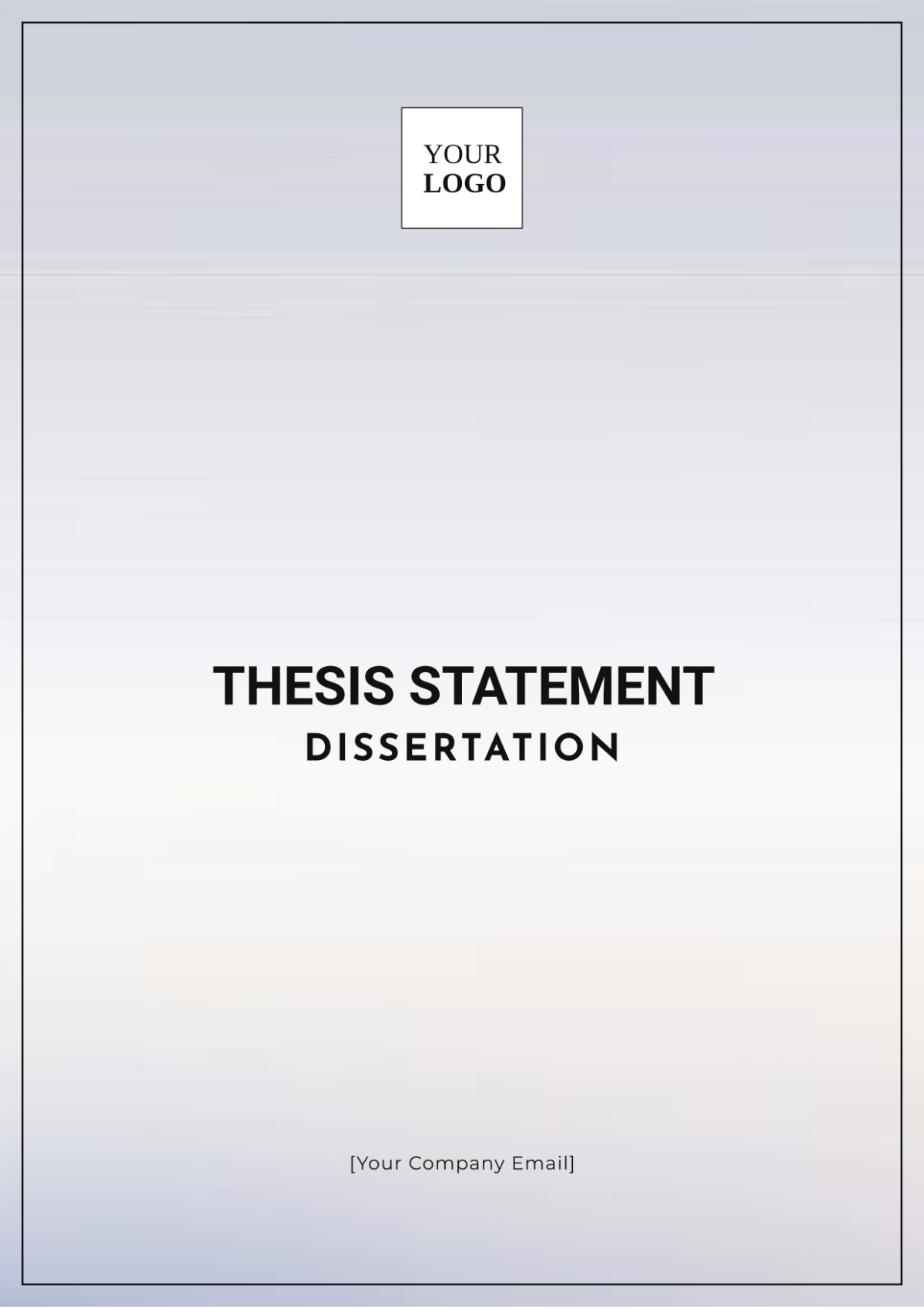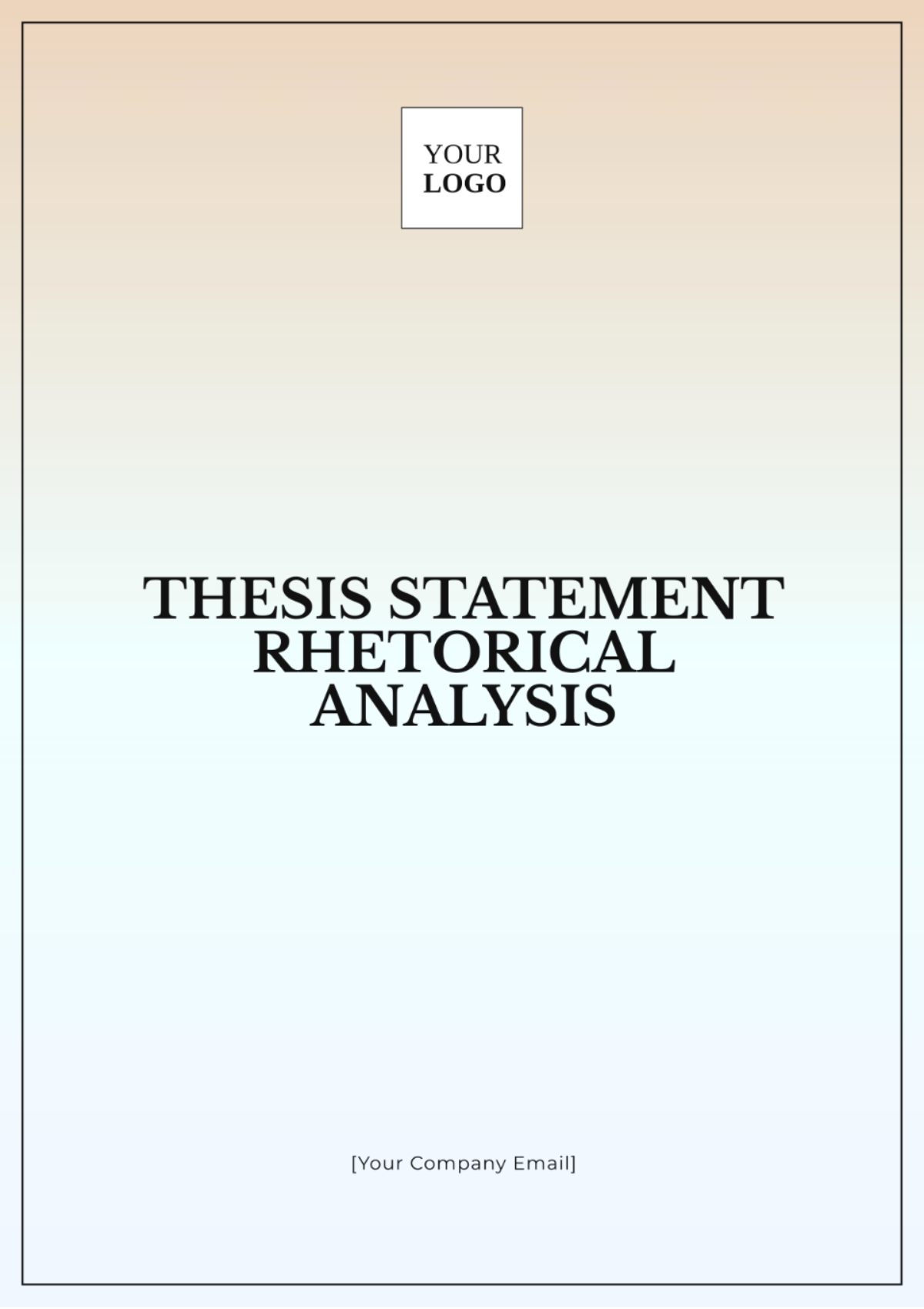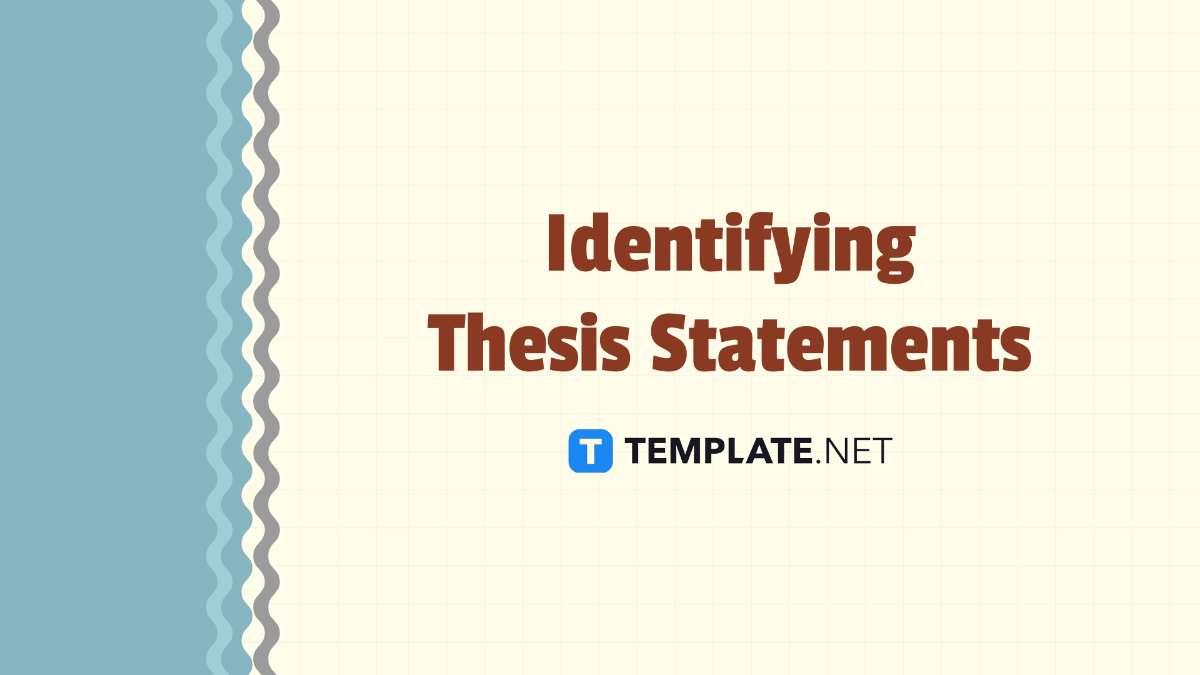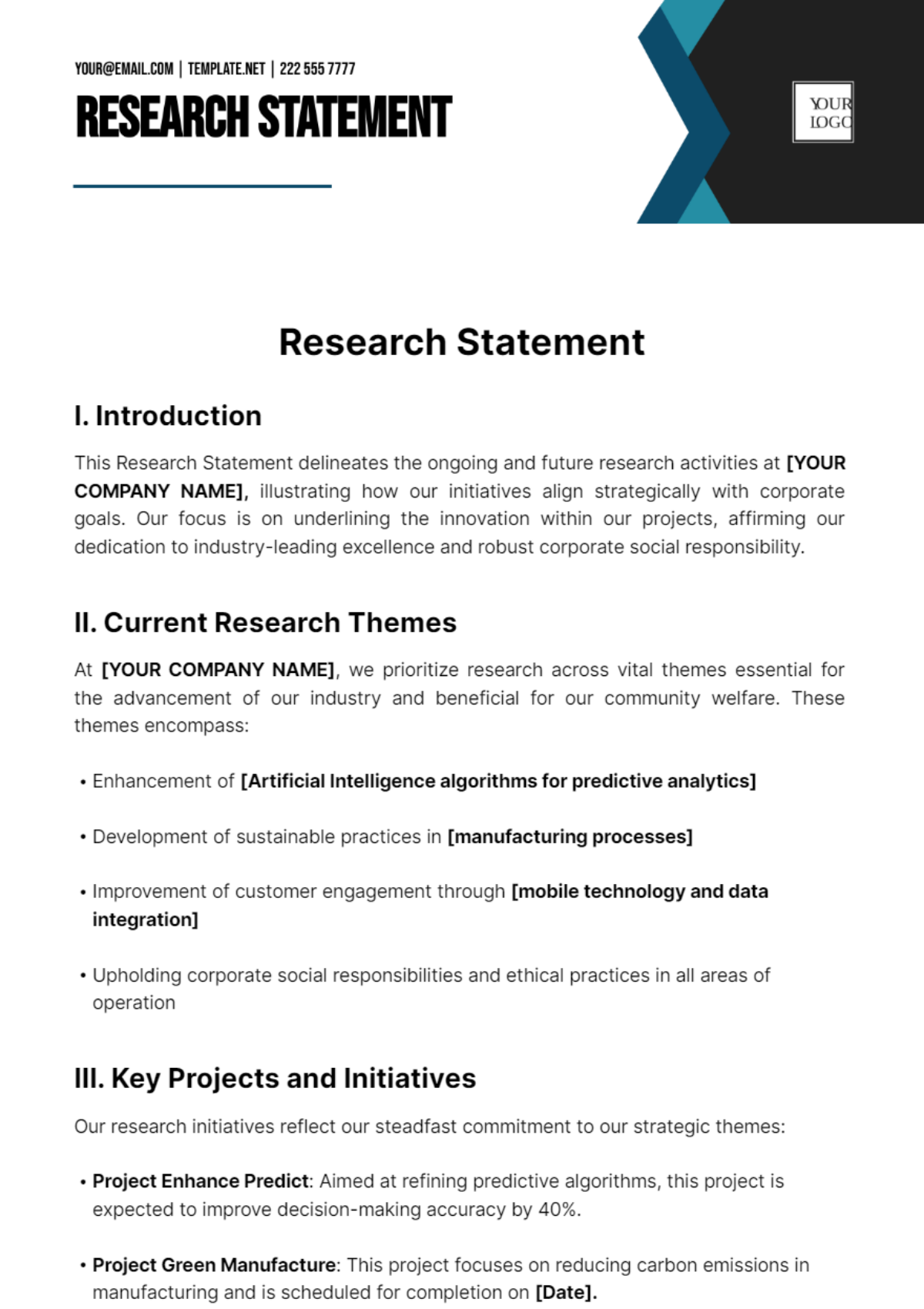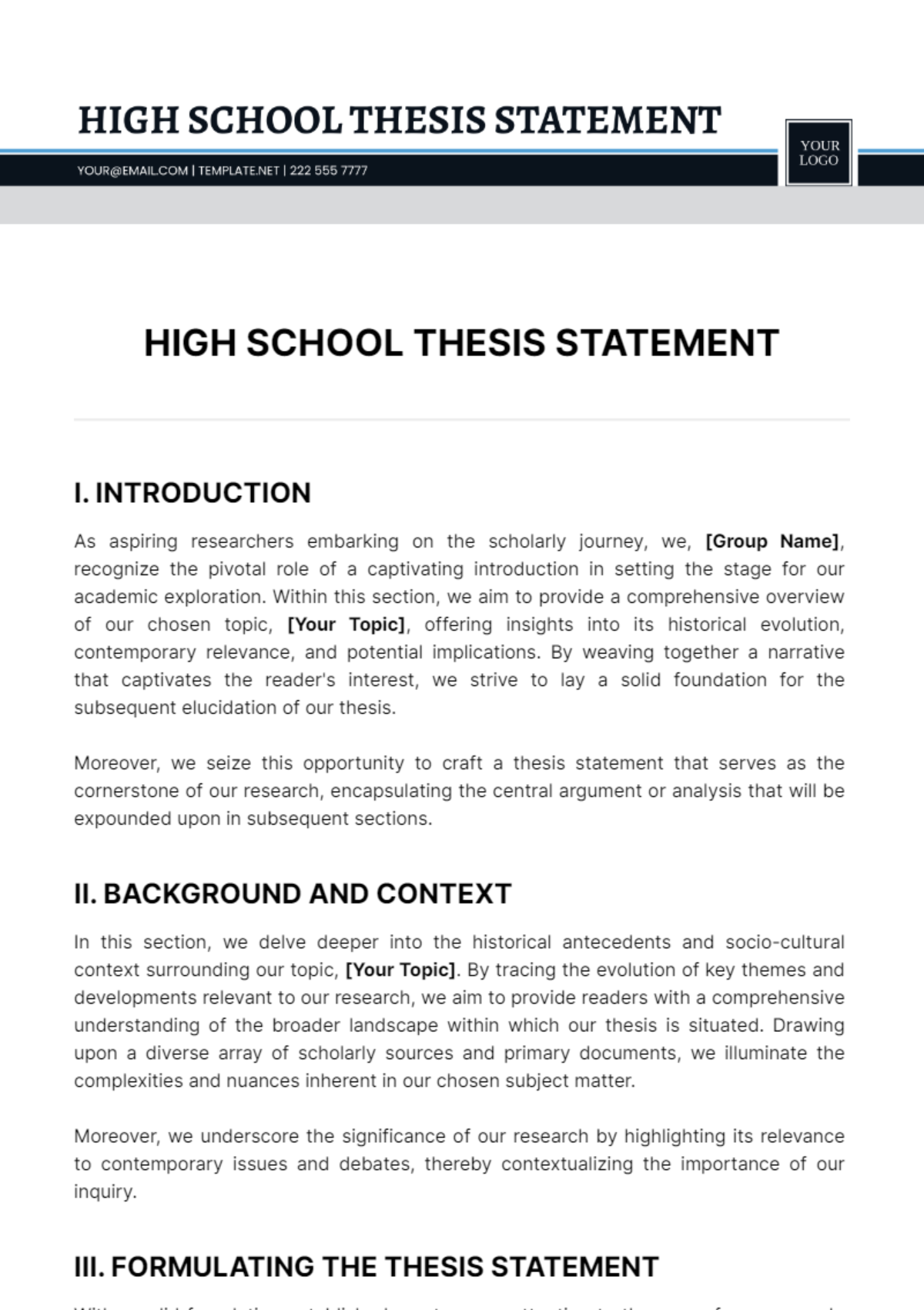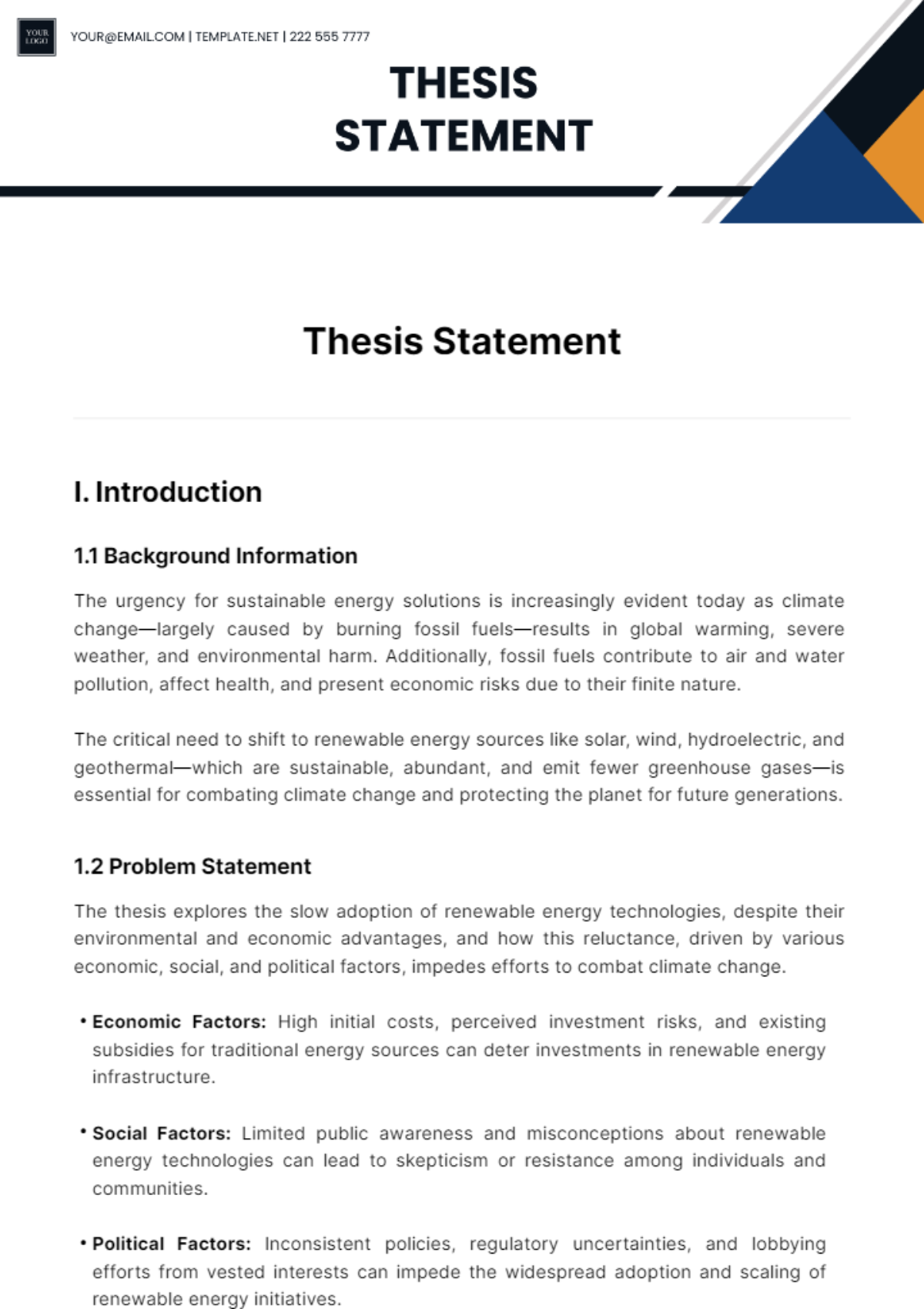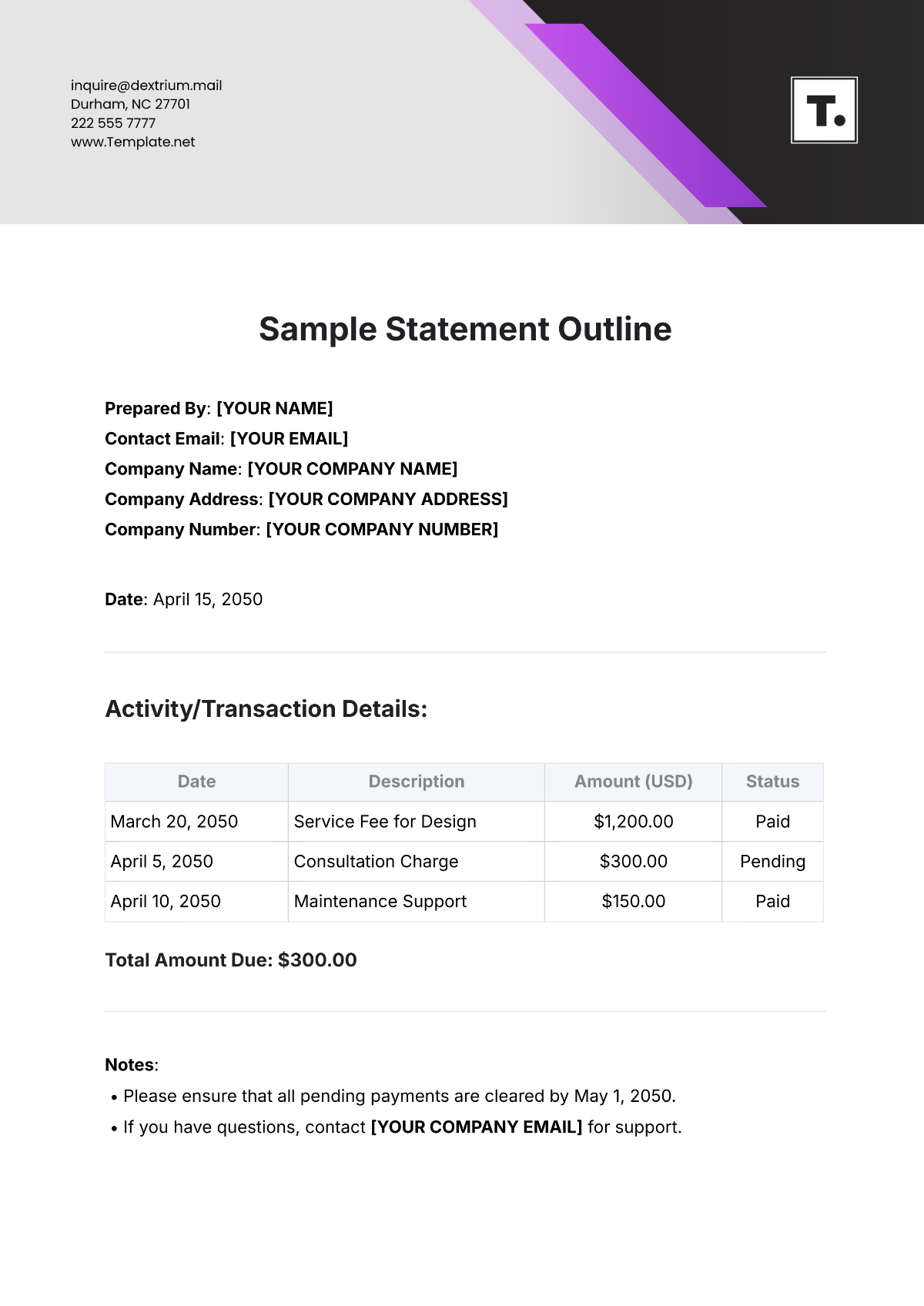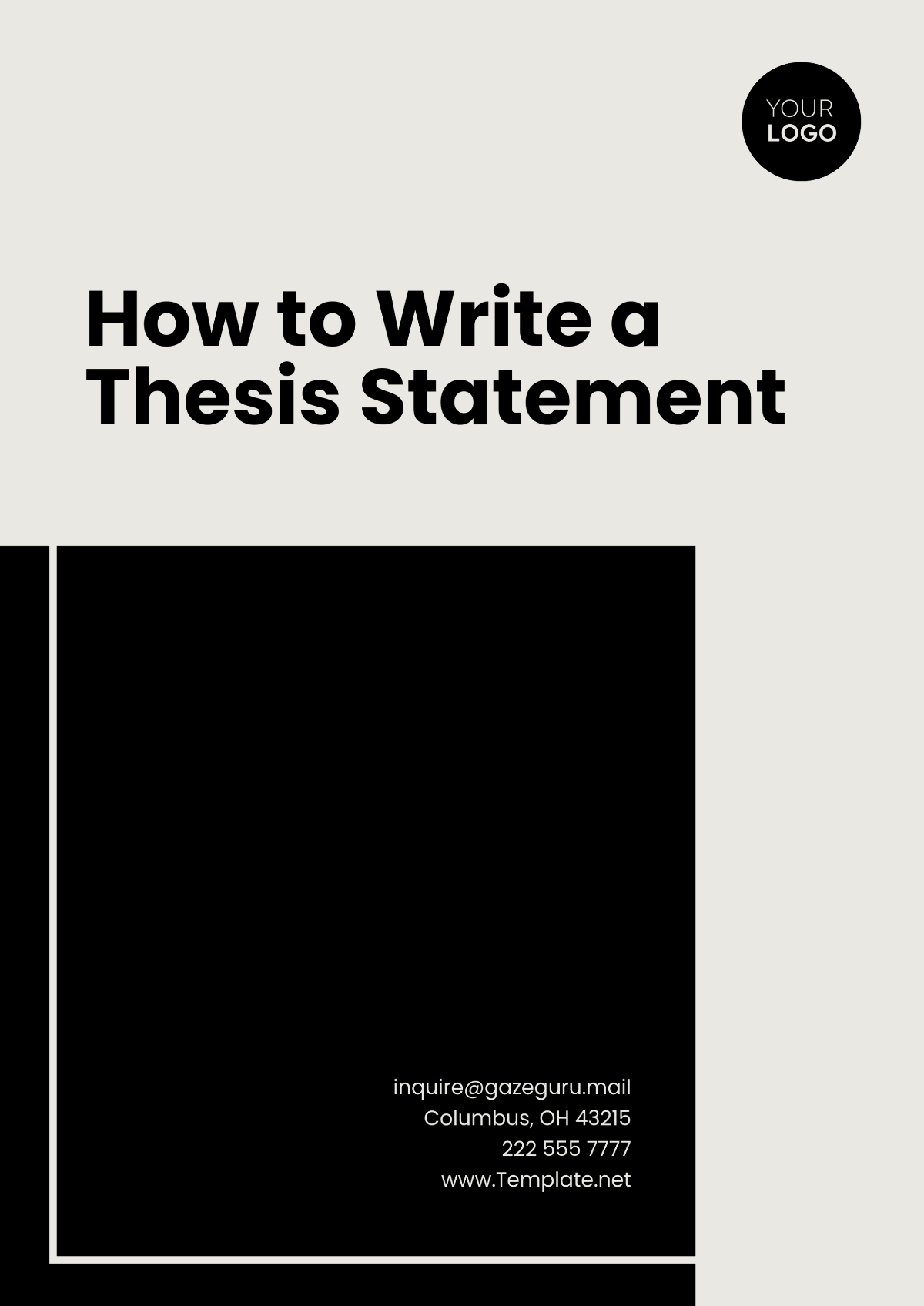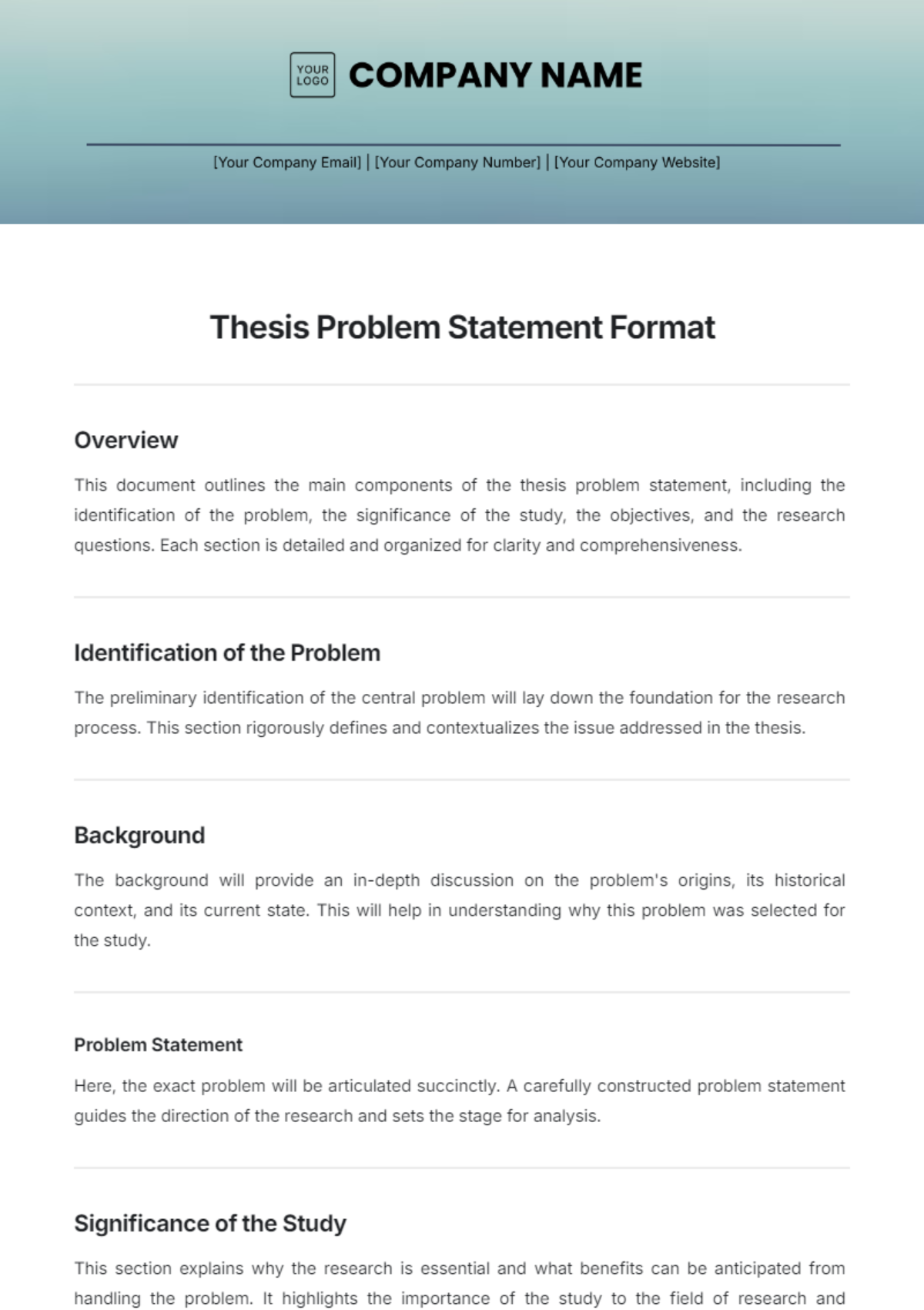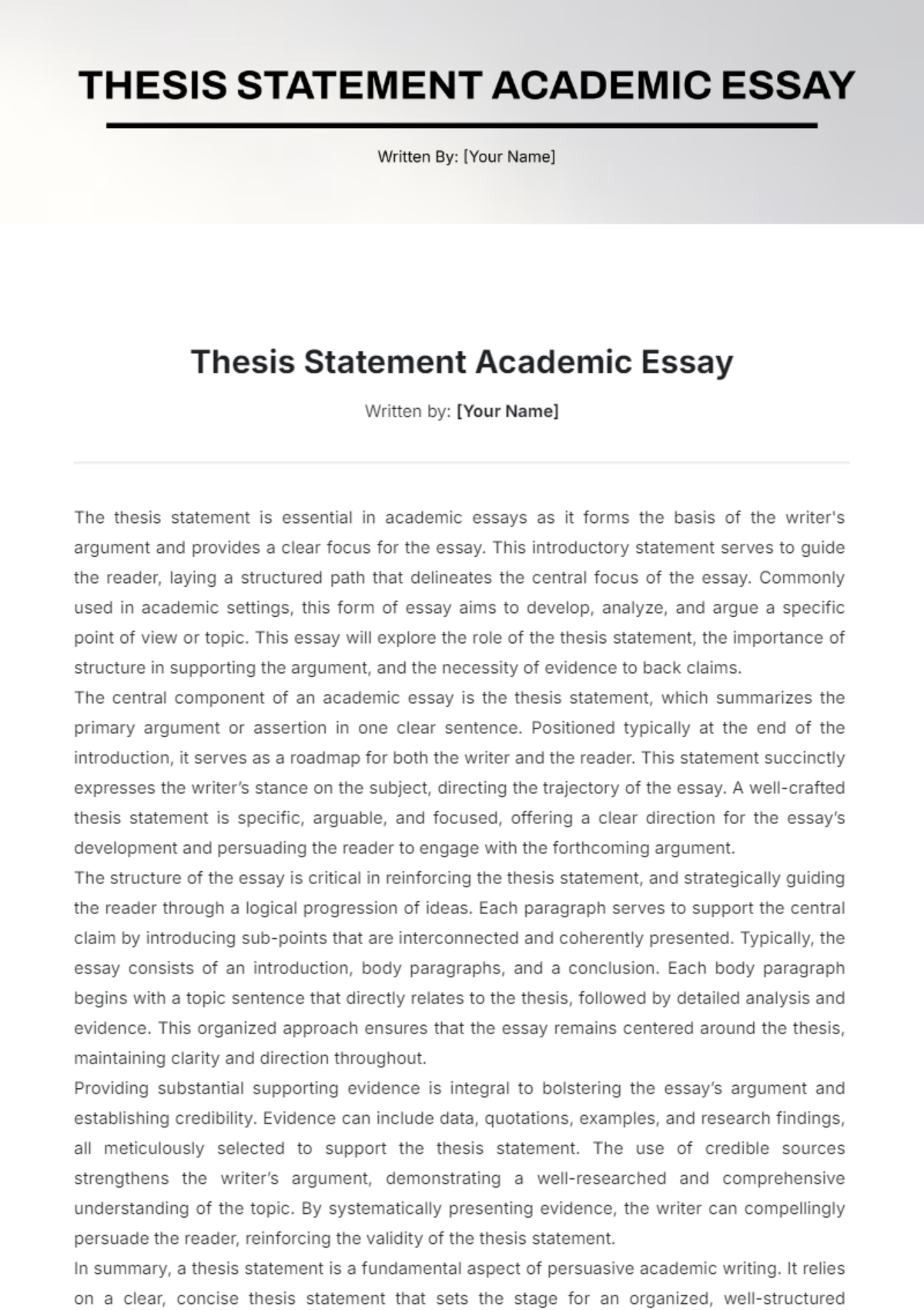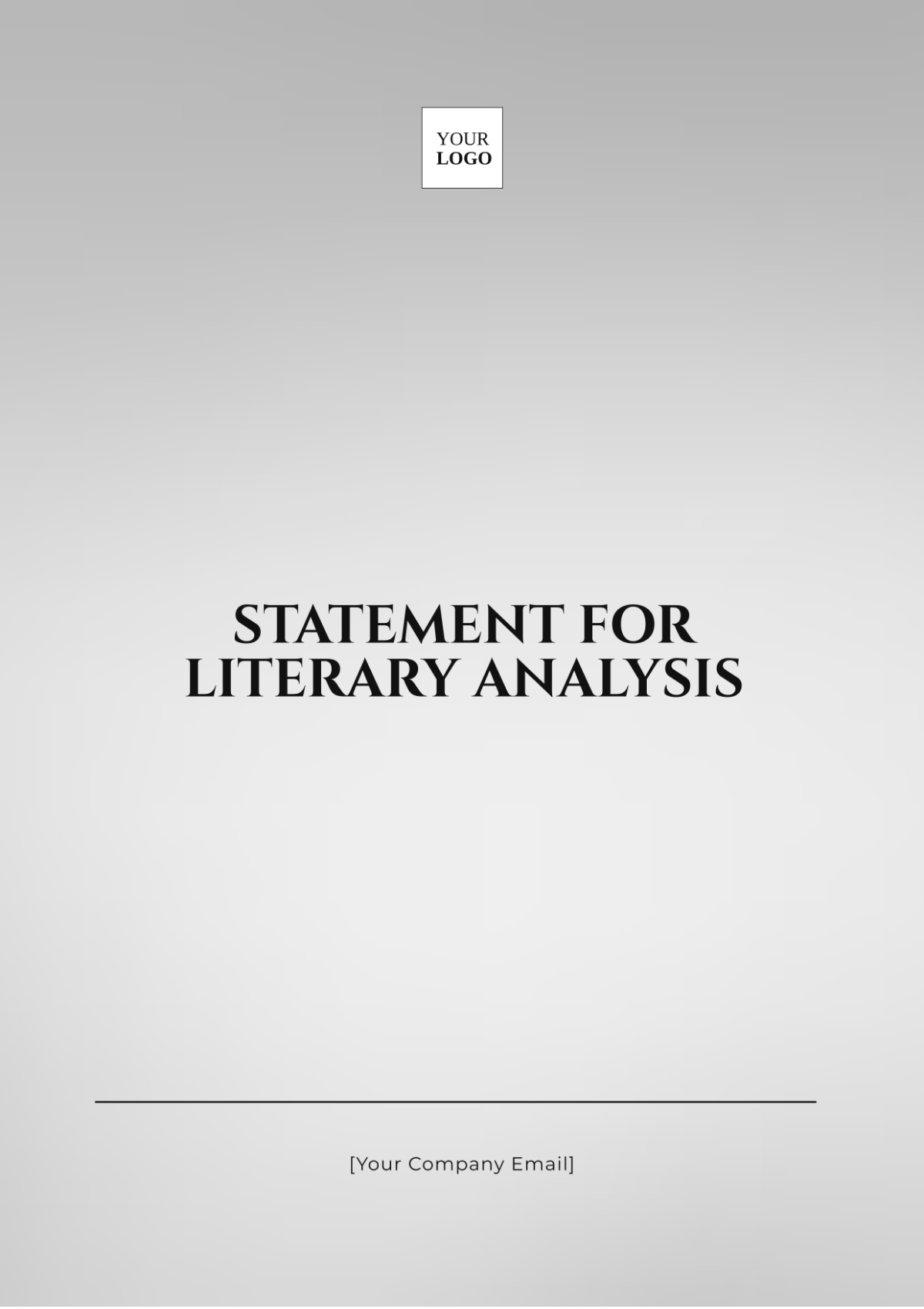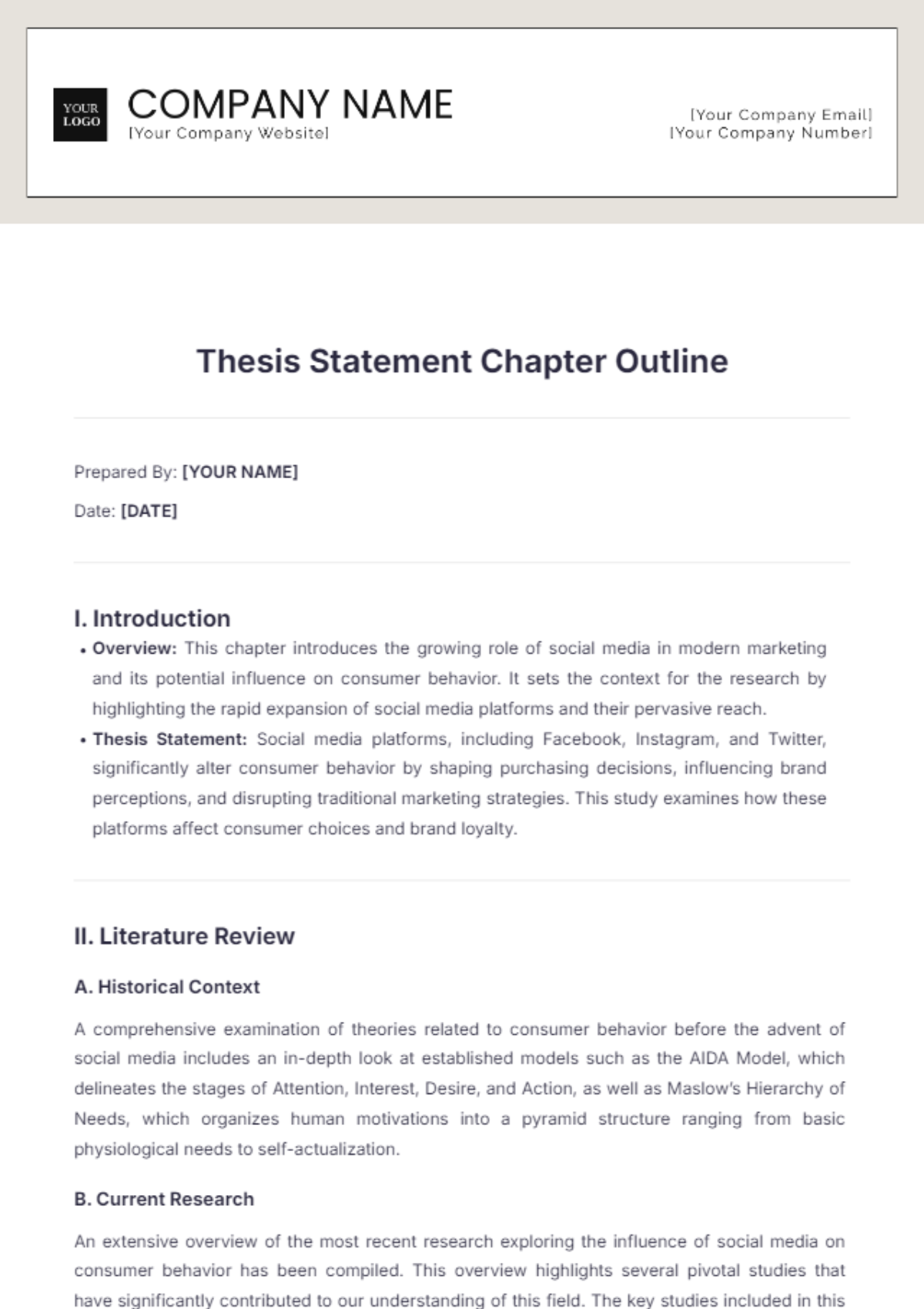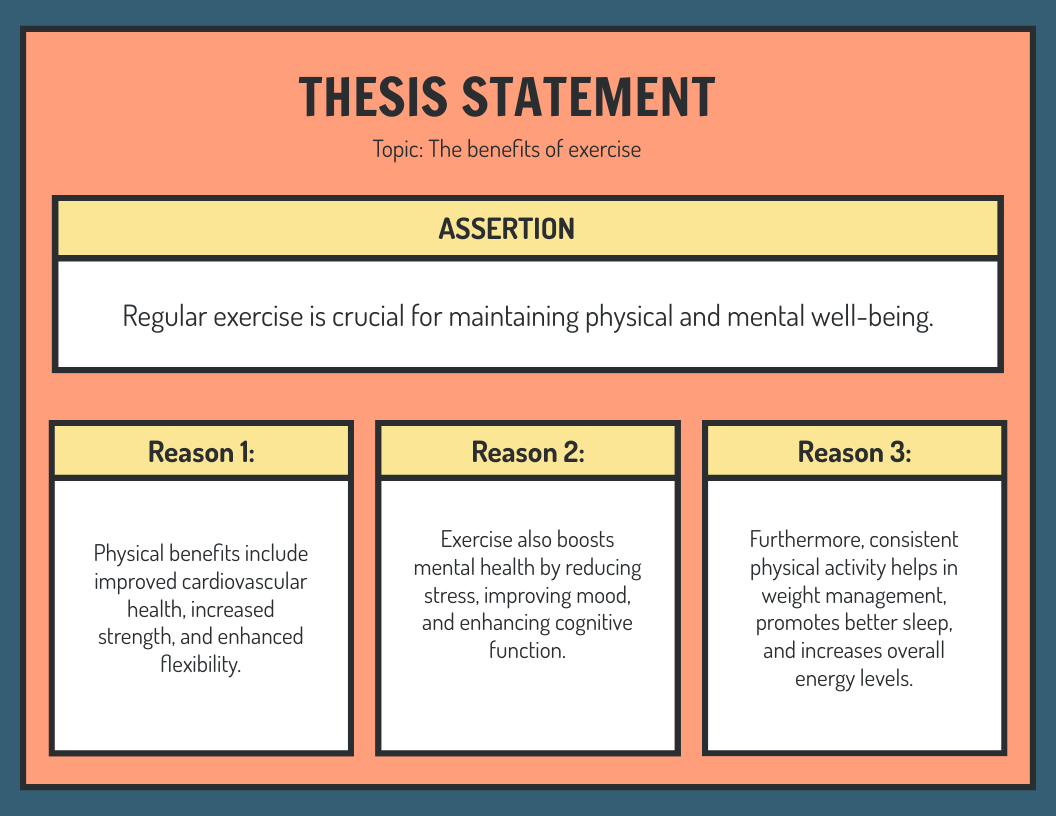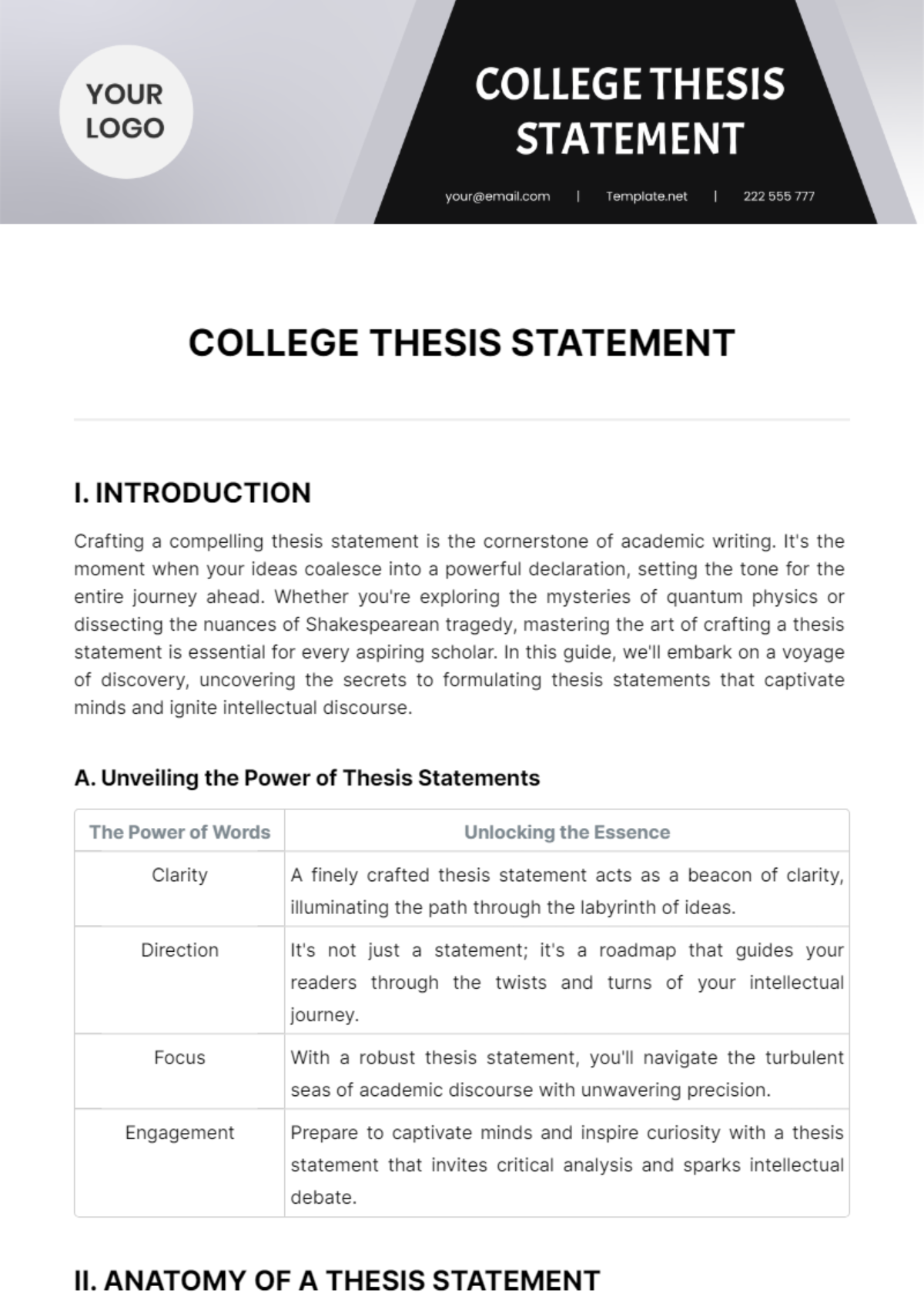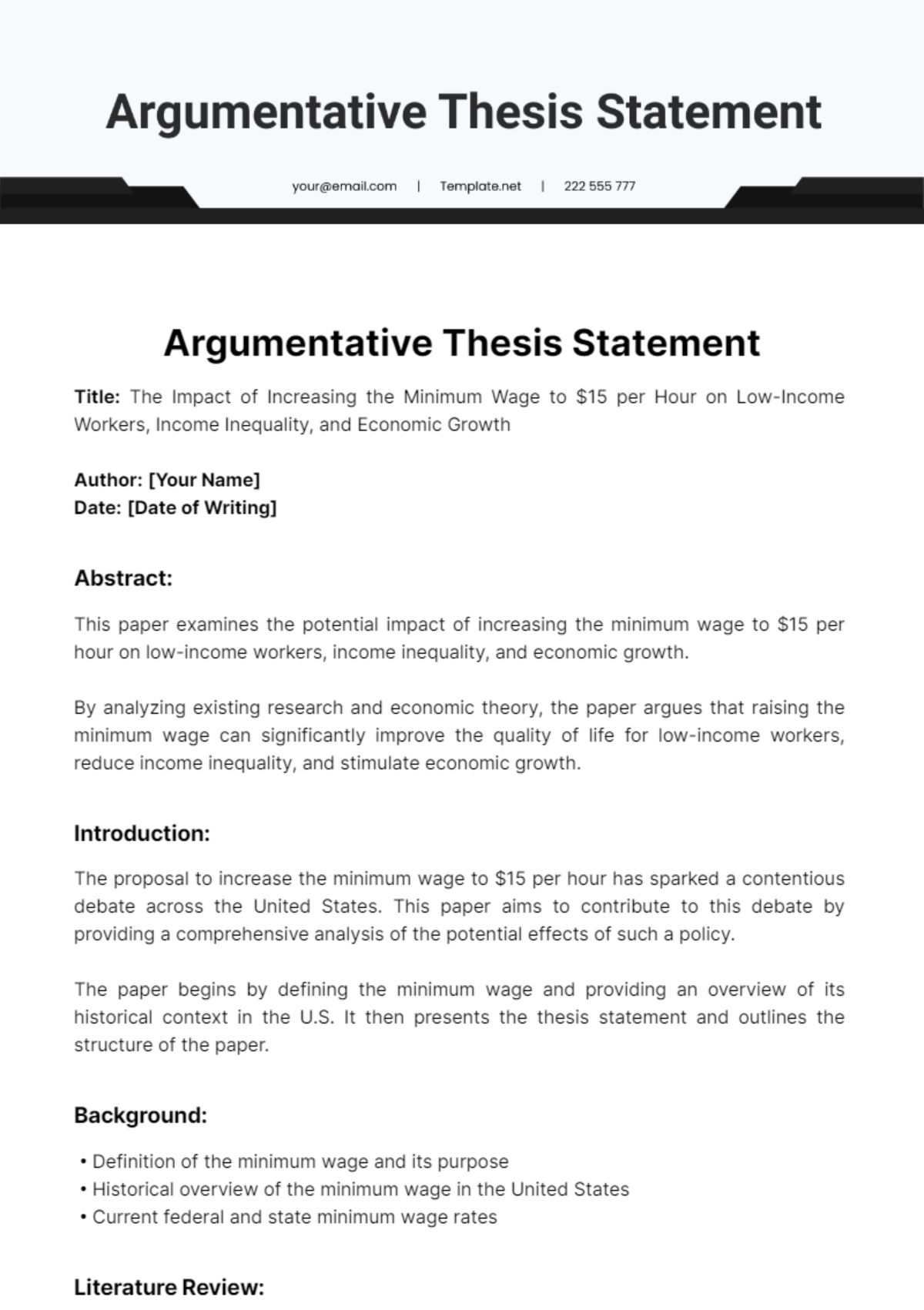Thesis Statement Dissertation
Prepared By: [Your Name]
Date: [Date]
1. Abstract
This dissertation investigates the transformative effects of technological advancements on modern education. It explores how digital tools, online platforms, and multimedia resources have reshaped educational practices. By analyzing recent empirical studies, conducting surveys with educators and students, and reviewing theoretical perspectives, this research provides a comprehensive understanding of the benefits and challenges associated with technology in education.
2. Introduction
2.1 Background
Technological advancements have revolutionized various sectors, including education. From the early use of overhead projectors to the current integration of artificial intelligence in classrooms, technology has continuously influenced teaching and learning processes. This dissertation examines these changes, focusing on how technology impacts pedagogical strategies, student engagement, and learning outcomes.
2.2 Thesis Statement
Technological advancements have significantly transformed modern education by enhancing teaching methodologies, increasing resource accessibility, and improving student engagement. Despite these benefits, challenges such as digital distractions and privacy concerns must be addressed to fully realize technology's potential in education.
2.3 Objectives
To assess how technological tools have improved teaching methodologies.
To evaluate the impact of technology on student engagement and academic performance.
To identify and address the challenges of integrating technology into educational settings.
3. Literature Review
3.1 Historical Perspective
The integration of technology in education has evolved dramatically:
Pre-20th Century: Traditional methods like chalkboards and textbooks.
Late 20th Century: Introduction of computers and multimedia presentations.
Early 21st Century: Adoption of the Internet, interactive whiteboards, and educational software.
3.2 Current Trends
Recent developments in educational technology include:
Digital Classrooms: Platforms like Google Classroom and Microsoft Teams facilitate virtual learning environments.
Mobile Learning: Apps such as Duolingo and Khan Academy provide learning opportunities via smartphones and tablets.
Online Courses: Massive Open Online Courses (MOOCs) on platforms like Coursera and edX offer flexible learning options.
3.3 Theoretical Frameworks
Several theories underpin the use of technology in education:
Constructivist Theory: Emphasizes that learners construct their understanding and knowledge through experiences and reflecting on those experiences. Technology supports this by providing interactive and immersive learning experiences.
Connectivism: Suggests that learning occurs through networks and connections. Technology enables access to a vast array of information and resources, fostering a connected learning environment.
4. Methodology
4.1 Research Design
A mixed-methods approach is used to provide a comprehensive analysis:
Quantitative: Surveys to collect numerical data on technology usage and its impact.
Qualitative: Interviews to gain deeper insights into educators' and students' experiences with technology.
4.2 Data Collection
Method | Participants | Content |
|---|---|---|
Surveys | 200 educators and 300 students | Questions about technology usage, perceived effectiveness, and challenges encountered. |
Interviews | 10 educational technology experts and 15 school administrators | Discussions on best practices, integration strategies, and potential improvements for technology use in education. |
4.3 Data Analysis
Quantitative Analysis: Statistical techniques such as regression analysis to identify trends and correlations.
Qualitative Analysis: Thematic analysis to categorize and interpret interview responses.
5. Results
5.1 Impact on Teaching Methodologies
(a) Enhancements
Interactive Learning: Digital tools like interactive whiteboards and educational apps facilitate engaging, hands-on learning experiences.
Personalized Education: Adaptive learning technologies such as DreamBox and Smart Sparrow tailor educational content to individual student needs, improving learning outcomes.
(b) Challenges
Technological Dependence: Over-reliance on technology can diminish traditional teaching skills and reduce face-to-face interactions.
Technical Issues: Issues such as software glitches and hardware malfunctions can disrupt teaching and learning.
5.2 Effects on Student Engagement and Performance
(a) Positive Outcomes
Increased Engagement: Gamification techniques used in platforms like Classcraft enhance student motivation and participation.
Improved Access: Online resources and platforms offer students access to diverse educational materials beyond traditional textbooks.
(b) Negative Outcomes
Distraction: The presence of non-educational apps and social media on devices can lead to decreased focus and productivity.
Inequality: Differences in access to technology can exacerbate educational disparities among students from varying socioeconomic backgrounds.
5.3 Challenges and Limitations
Privacy Concerns: The use of digital tools raises issues related to data security and the protection of student information.
Training and Support: Adequate training for educators is necessary to effectively integrate and utilize new technologies in the classroom.
6. Discussion
6.1 Interpretation of Results
The study reveals that while technological advancements offer significant benefits in enhancing teaching methodologies and student engagement, they also pose challenges that need to be addressed. Balancing technology use with traditional methods and ensuring equitable access are crucial for maximizing educational benefits.
6.2 Implications for Education
Policy Development: Educational institutions should develop comprehensive policies to address the challenges of technology integration, including data privacy and digital distraction.
Professional Development: Continuous training programs for educators are essential to keep pace with technological advancements and ensure effective implementation.
6.3 Recommendations
Balanced Integration: Integrate technology in a way that complements rather than replaces traditional teaching methods. For example, using technology for interactive exercises while maintaining in-person discussions.
Equitable Access: Ensure that all students have access to necessary technological resources to prevent disparities. For instance, providing loaner devices to students in need.
Ongoing Support: Offer regular professional development and technical support to educators to help them effectively use and troubleshoot technology in the classroom.
7. Conclusion
Technological advancements have profoundly impacted modern education, leading to improvements in teaching methods and student engagement. However, addressing challenges such as privacy concerns and ensuring equitable access is essential for fully leveraging technology's potential. By implementing balanced integration strategies and providing ongoing support, educational institutions can maximize the benefits of technology in enhancing learning experiences.
8. References
Smith, J. (2050). The Evolution of Educational Technology. Educational Publishing.
Johnson, L., & Brown, T. (2052). Digital Classrooms: A Comparative Study. Journal of Educational Technology, 45(3), 123-145.
Davis, K., & Lee, M. (2051). Mobile Learning and Student Engagement. International Review of Education, 67(4), 234-250.
Moore, R. (2054). Privacy and Security in Digital Education. Cyber Education Review, 12(1), 78-92.
